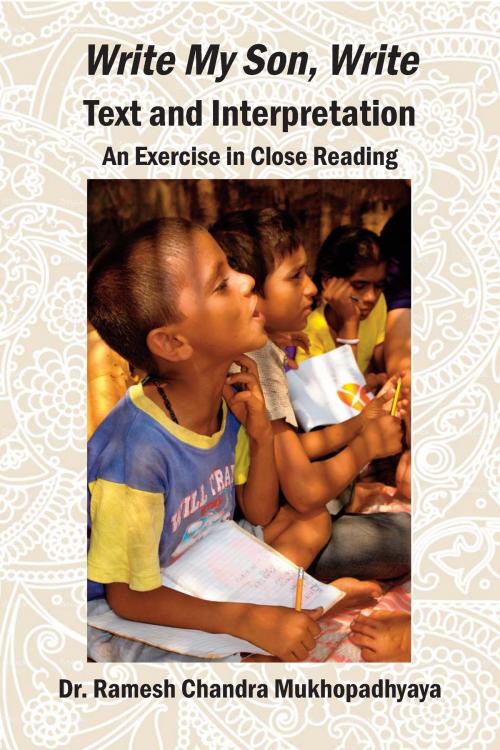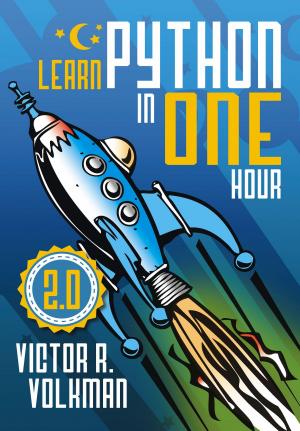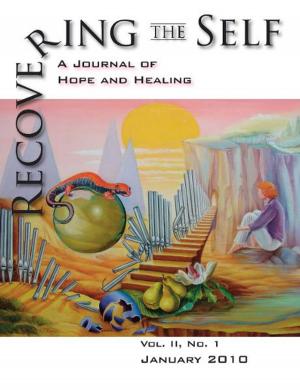K. V. Dominic's Write My Son, Write--Text and Interpretation
An Exercise in Close Reading
Fiction & Literature, Literary Theory & Criticism, Asian, South & Southeast Asian, Nonfiction, Social & Cultural Studies, Social Science, Sociology, Religion & Spirituality, Philosophy| Author: | Ramesh Chandra Mukhopadhyaya | ISBN: | 9781615993055 |
| Publisher: | Loving Healing Press | Publication: | June 1, 2016 |
| Imprint: | Modern History Press | Language: | English |
| Author: | Ramesh Chandra Mukhopadhyaya |
| ISBN: | 9781615993055 |
| Publisher: | Loving Healing Press |
| Publication: | June 1, 2016 |
| Imprint: | Modern History Press |
| Language: | English |
"Write My Son, Write" is K. V. Dominic's longest poem, in 21 sections taken from his collection of poems entitled Write Son, Write. Dominic unabashedly tackles every-day issues of India such as the social injustice of poverty, man's crass exploitation of natural resources that ought to belong to everyone, terrorism, and the eternal beauty of the natural world. This poem is the manifesto of Dominic's views and philosophies.
About this work, K.V. Dominic writes, "People today are crazy after materialism, and divinity in them is being lost to such an extent that they give no importance to principles, values, family and social relations, cohabitance with human beings and other beings. Instead they are trying their maximum to exploit their fellow beings, other beings and the planet itself. If it goes like this, the total destruction is not far away. It is the duty of the religious leaders, political leaders and the intelli-gentsia to inject the lost values to the masses and thus preserve this planet and the inhabitants from the imminent devastation. Instead, majority of these leaders become mafias and inject communal and corruptive venom to the minds of the masses. Corruption has become the hallmark of these leaders and influenced by them the masses also deviate from the right track to the evil track. And who will save this society? Writers, particularly poets who are like prophets."
Dr. Ramesh Chandra Mukhopadhyaya's commentary provides the most complete critical analysis of the poem, section-by-section and line-by-line. Born in 1947 Ramesh Chandra Mukhopadhyaya M A (Triple) MPhil, PhD is a retired college teacher now residing at Howrah, West Bengal, India,. A Bilingual writer (English and Bengali), he has been writing on different subjects for the last thirty years. He seeks to retrieve the wealth of poetry when it is a revelation. Dr. Mukhopadhyaya regards K. V. Dominic as a poet of a seer.
From the World Voices Series
Modern History Press
"Write My Son, Write" is K. V. Dominic's longest poem, in 21 sections taken from his collection of poems entitled Write Son, Write. Dominic unabashedly tackles every-day issues of India such as the social injustice of poverty, man's crass exploitation of natural resources that ought to belong to everyone, terrorism, and the eternal beauty of the natural world. This poem is the manifesto of Dominic's views and philosophies.
About this work, K.V. Dominic writes, "People today are crazy after materialism, and divinity in them is being lost to such an extent that they give no importance to principles, values, family and social relations, cohabitance with human beings and other beings. Instead they are trying their maximum to exploit their fellow beings, other beings and the planet itself. If it goes like this, the total destruction is not far away. It is the duty of the religious leaders, political leaders and the intelli-gentsia to inject the lost values to the masses and thus preserve this planet and the inhabitants from the imminent devastation. Instead, majority of these leaders become mafias and inject communal and corruptive venom to the minds of the masses. Corruption has become the hallmark of these leaders and influenced by them the masses also deviate from the right track to the evil track. And who will save this society? Writers, particularly poets who are like prophets."
Dr. Ramesh Chandra Mukhopadhyaya's commentary provides the most complete critical analysis of the poem, section-by-section and line-by-line. Born in 1947 Ramesh Chandra Mukhopadhyaya M A (Triple) MPhil, PhD is a retired college teacher now residing at Howrah, West Bengal, India,. A Bilingual writer (English and Bengali), he has been writing on different subjects for the last thirty years. He seeks to retrieve the wealth of poetry when it is a revelation. Dr. Mukhopadhyaya regards K. V. Dominic as a poet of a seer.
From the World Voices Series
Modern History Press















